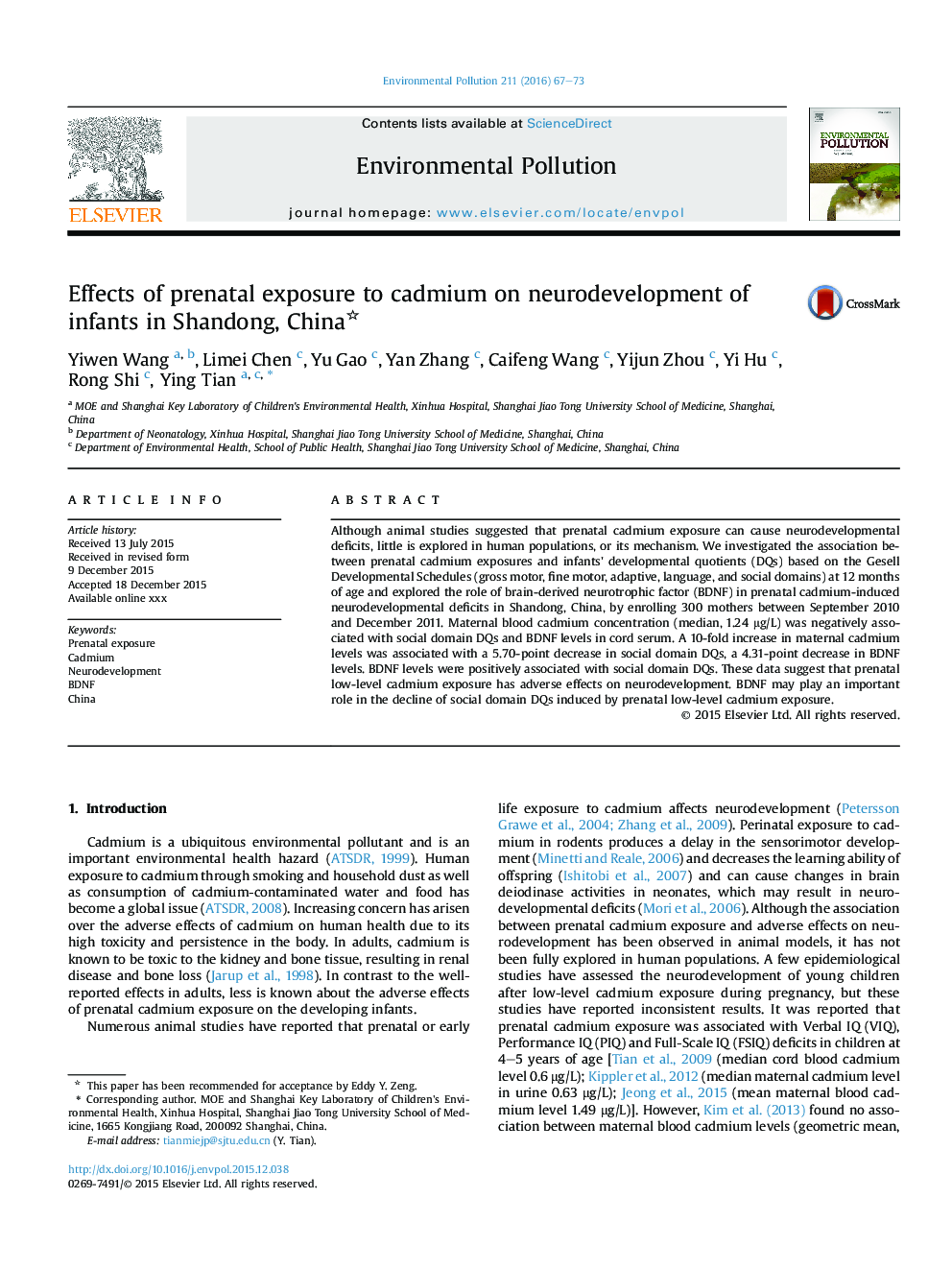| Article ID | Journal | Published Year | Pages | File Type |
|---|---|---|---|---|
| 6315468 | Environmental Pollution | 2016 | 7 Pages |
Abstract
Although animal studies suggested that prenatal cadmium exposure can cause neurodevelopmental deficits, little is explored in human populations, or its mechanism. We investigated the association between prenatal cadmium exposures and infants' developmental quotients (DQs) based on the Gesell Developmental Schedules (gross motor, fine motor, adaptive, language, and social domains) at 12 months of age and explored the role of brain-derived neurotrophic factor (BDNF) in prenatal cadmium-induced neurodevelopmental deficits in Shandong, China, by enrolling 300 mothers between September 2010 and December 2011. Maternal blood cadmium concentration (median, 1.24 μg/L) was negatively associated with social domain DQs and BDNF levels in cord serum. A 10-fold increase in maternal cadmium levels was associated with a 5.70-point decrease in social domain DQs, a 4.31-point decrease in BDNF levels. BDNF levels were positively associated with social domain DQs. These data suggest that prenatal low-level cadmium exposure has adverse effects on neurodevelopment. BDNF may play an important role in the decline of social domain DQs induced by prenatal low-level cadmium exposure.
Related Topics
Life Sciences
Environmental Science
Environmental Chemistry
Authors
Yiwen Wang, Limei Chen, Yu Gao, Yan Zhang, Caifeng Wang, Yijun Zhou, Yi Hu, Rong Shi, Ying Tian,
